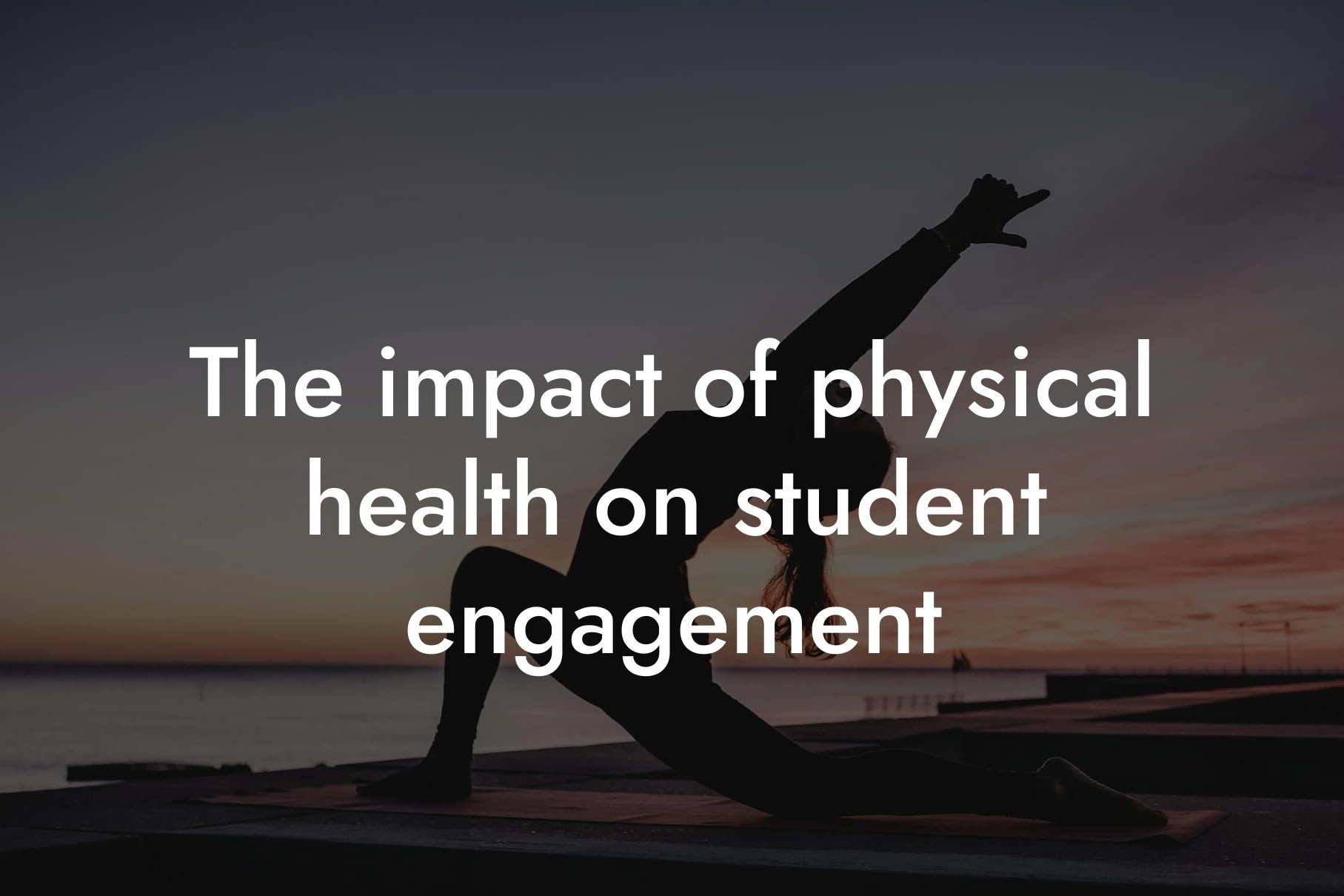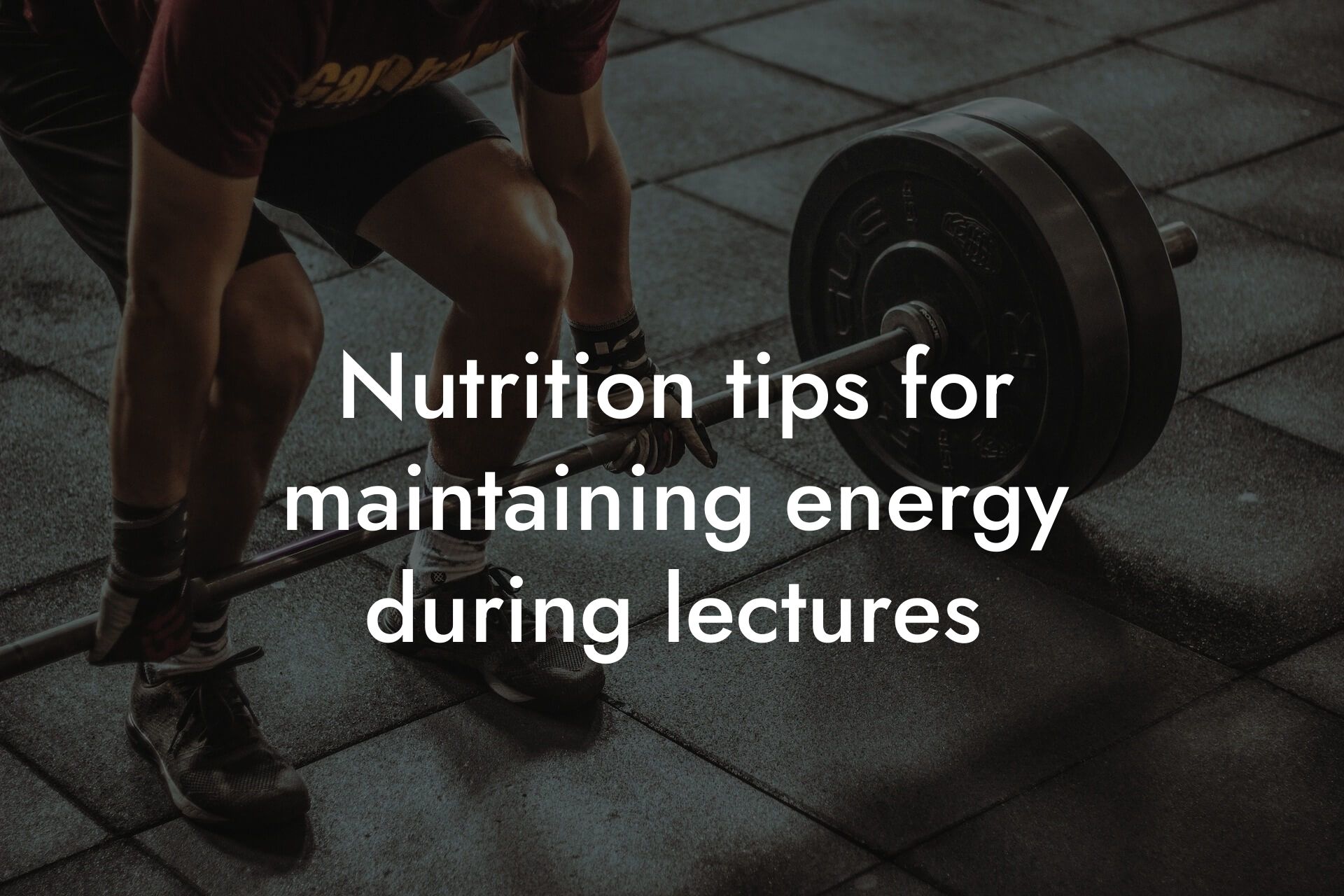As a high-earning professional, you understand the importance of maintaining a healthy work-life balance. However, with the demands of grading and lesson planning, it can be challenging to prioritize personal fitness. At Tano Performance Group, we believe that taking care of your physical health is essential to achieving success in your career. In this article, we will provide you with practical tips and strategies to balance your grading and lesson planning responsibilities with your personal fitness goals.
Table of Contents
- The Importance of Prioritizing Personal Fitness
- Time Management Strategies for Busy Educators
- Creating a Fitness Schedule That Works for You
- Incorporating Fitness into Your Daily Routine
- Nutrition and Meal Planning for Busy Educators
- Using Technology to Your Advantage
- Getting Started with DEXA Scanning
- Frequently Asked Questions
The Importance of Prioritizing Personal Fitness
As an educator, you are likely no stranger to the concept of burnout. Long hours spent grading and lesson planning can take a toll on your physical and mental health. However, prioritizing personal fitness can help mitigate the effects of burnout and improve your overall well-being. Regular exercise has been shown to reduce stress, increase energy levels, and improve cognitive function. Moreover, maintaining a healthy weight and body composition can boost your confidence and self-esteem, allowing you to perform at your best in the classroom.
Time Management Strategies for Busy Educators
One of the biggest challenges of balancing grading and lesson planning with personal fitness is finding the time. As an educator, your schedule is likely filled with meetings, parent-teacher conferences, and extracurricular activities. However, with a few simple time management strategies, you can make time for fitness. Try waking up earlier to fit in a morning workout, or use your lunch break to squeeze in a quick exercise routine. You can also try to incorporate physical activity into your daily routine, such as taking the stairs instead of the elevator or going for a walk during your planning period.
Creating a Fitness Schedule That Works for You
Once you have identified pockets of time in your schedule, it's essential to create a fitness schedule that works for you. Start by identifying your fitness goals, whether it's to lose weight, increase muscle mass, or improve cardiovascular health. From there, create a workout routine that incorporates a mix of cardio, strength training, and flexibility exercises. Be sure to schedule rest days and active recovery days to avoid burnout and prevent injury. Remember to be flexible and adjust your schedule as needed to accommodate changes in your work schedule.
Incorporating Fitness into Your Daily Routine
In addition to scheduling dedicated workout time, there are many ways to incorporate fitness into your daily routine. Try taking a walk during your lunch break, doing a few jumping jacks during commercial breaks while grading, or doing a quick 10-minute workout during your planning period. You can also try to incorporate physical activity into your daily commute, such as biking or walking to work. Every bit counts, and these small changes can add up to make a big difference in your overall fitness.
Nutrition and Meal Planning for Busy Educators
While exercise is an essential component of personal fitness, nutrition and meal planning are equally important. As an educator, you may find yourself relying on convenience foods or takeout to get through the busy school year. However, these foods are often high in processed ingredients, added sugars, and unhealthy fats. Instead, try meal prepping on the weekends or one day a week, and focus on whole, nutrient-dense foods like fruits, vegetables, lean proteins, and whole grains. You can also try to incorporate healthy snacks into your daily routine, such as nuts, seeds, and dried fruit.
Using Technology to Your Advantage
As an educator, you are likely familiar with the many digital tools and resources available to support your teaching practice. However, you may not be aware of the many fitness apps and tools available to support your personal fitness journey. From workout tracking apps to meal planning software, there are many tools available to help you stay on track and achieve your fitness goals. Try exploring different options to find what works best for you, and don't be afraid to reach out to a fitness professional for guidance and support.
Getting Started with DEXA Scanning
At Tano Performance Group, we believe that DEXA scanning is an essential tool for achieving your personal fitness goals. DEXA scanning provides a comprehensive picture of your body composition, including bone density, muscle mass, and body fat percentage. With this information, you can create a personalized fitness plan that targets your specific needs and goals. Our team of fitness professionals can help you interpret your DEXA scan results and create a customized workout and nutrition plan to help you achieve optimal health and fitness.
Balancing grading and lesson planning with personal fitness may seem like an impossible task, but with the right strategies and mindset, it is achievable. By prioritizing personal fitness, creating a fitness schedule that works for you, and incorporating fitness into your daily routine, you can improve your overall health and well-being. Remember to use technology to your advantage, and don't be afraid to seek out support and guidance from fitness professionals. With the right tools and resources, you can achieve your fitness goals and perform at your best in the classroom.
Frequently Asked Questions
How can I prioritize my physical fitness when I have a demanding job as a teacher?
As a teacher, it's essential to recognize that taking care of your physical health is crucial to maintaining your energy levels, focus, and overall well-being. Start by scheduling your workouts during your most energetic periods of the day, whether that's early morning, lunch break, or immediately after school. Even 20-30 minutes of moderate exercise can make a significant difference. Additionally, consider incorporating physical activity into your daily routine, such as taking the stairs instead of the elevator or going for a short walk during your planning period.
What are some quick and effective workout routines that can be done during a busy school day?
There are several quick and effective workout routines that can be done during a busy school day. One option is High-Intensity Interval Training (HIIT), which involves short bursts of intense exercise followed by brief periods of rest. Another option is bodyweight exercises, such as push-ups, squats, and lunges, which can be done in a short amount of time and require minimal equipment. You can also try incorporating short yoga or stretching routines to help reduce stress and increase flexibility.
How can I meal prep on a tight schedule?
Meal prep doesn't have to be time-consuming. Start by planning your meals for the week, focusing on simple, healthy options like salads, soups, and grilled proteins with roasted vegetables. Consider batch cooking on the weekends or one day a week, and portioning out individual meals in containers. You can also prep individual ingredients, such as chopping vegetables or cooking proteins, to make meal assembly quicker during the week.
What are some healthy snack options that can be easily packed and taken on-the-go?
Healthy snacking is essential to maintaining energy levels throughout the day. Some easy and convenient options include nuts and seeds, dried fruits, energy bars, jerky, and trail mix. You can also prep your own snacks, such as cutting up fresh fruits and vegetables, making energy balls, or packing individual servings of hummus and crackers.
How can I stay motivated to prioritize my fitness goals when I'm exhausted from teaching?
Staying motivated can be challenging, especially when you're feeling exhausted. One strategy is to focus on how regular exercise improves your overall well-being, including increased energy levels, better sleep, and enhanced mood. Celebrate your small victories, such as completing a workout or meal prepping for the week. Additionally, consider finding a workout buddy or accountability partner to help keep you motivated and on track.
What are some stress-reducing techniques that can be done during the school day?
Stress reduction is essential for maintaining your overall well-being. One technique is deep breathing exercises, which can be done discreetly during the school day. Another option is short meditation sessions, which can be done during your planning period or lunch break. You can also try incorporating physical activity, such as yoga or stretching, to help reduce stress and increase flexibility.
How can I balance grading and lesson planning with personal fitness goals?
Balancing grading and lesson planning with personal fitness goals requires intentional time management. Start by prioritizing your tasks, focusing on the most critical grading and lesson planning tasks during your most productive periods of the day. Schedule your workouts and self-care activities during your less productive periods, such as immediately after school or during your lunch break. Remember to take regular breaks to rest and recharge, which can help improve your focus and productivity.
What are some time-saving tips for fitting in a workout during the school day?
Fitting in a workout during the school day requires creativity and flexibility. One strategy is to use your lunch break to fit in a quick workout, such as a brisk walk or bodyweight exercises. Another option is to wake up earlier and fit in a morning workout before school. You can also try incorporating physical activity into your daily routine, such as taking the stairs instead of the elevator or going for a short walk during your planning period.
How can I stay accountable to my fitness goals when I'm not seeing immediate results?
Staying accountable to your fitness goals can be challenging, especially when you're not seeing immediate results. One strategy is to focus on progress, not perfection. Celebrate your small victories, such as increasing your water intake or completing a certain number of workouts per week. Additionally, consider finding a workout buddy or accountability partner to help keep you motivated and on track. Regular progress tracking, such as taking body measurements or tracking your workouts, can also help you stay motivated and focused on your goals.
What are some healthy habits that can be incorporated into my daily routine?
Incorporating healthy habits into your daily routine can have a significant impact on your overall well-being. Some options include drinking at least eight glasses of water per day, taking regular breaks to stretch and move, and prioritizing sleep and rest. You can also try incorporating healthy snacks, such as fruits and vegetables, into your daily routine.
How can I prioritize self-care when I'm feeling overwhelmed with teaching responsibilities?
Prioritizing self-care is essential to maintaining your overall well-being, especially when you're feeling overwhelmed with teaching responsibilities. Start by recognizing that self-care is not selfish, but rather necessary to being a effective and engaged teacher. Schedule self-care activities, such as exercise, meditation, or reading, into your daily routine. Remember to take regular breaks to rest and recharge, which can help improve your focus and productivity.
What are some strategies for staying motivated to exercise when you're not seeing immediate results?
Staying motivated to exercise can be challenging, especially when you're not seeing immediate results. One strategy is to focus on how regular exercise improves your overall well-being, including increased energy levels, better sleep, and enhanced mood. Celebrate your small victories, such as completing a certain number of workouts per week or increasing your endurance. Additionally, consider finding a workout buddy or accountability partner to help keep you motivated and on track.
How can I make time for fitness when I have a heavy workload?
Making time for fitness requires intentional time management, especially when you have a heavy workload. Start by prioritizing your tasks, focusing on the most critical tasks during your most productive periods of the day. Schedule your workouts and self-care activities during your less productive periods, such as immediately after school or during your lunch break. Remember to take regular breaks to rest and recharge, which can help improve your focus and productivity.
What are some benefits of regular exercise for teachers?
Regular exercise has numerous benefits for teachers, including increased energy levels, improved mood, and enhanced focus and productivity. Exercise can also help reduce stress and anxiety, improve sleep quality, and boost overall well-being. Additionally, regular exercise can help increase confidence and self-esteem, which can translate to a more effective and engaging teaching style.
How can I stay hydrated during the school day?
Staying hydrated is essential to maintaining your energy levels and focus throughout the school day. Start by bringing a refillable water bottle to school and aiming to drink at least eight glasses of water per day. You can also try incorporating hydrating foods, such as watermelon and cucumbers, into your diet. Avoid sugary drinks and caffeine, which can dehydrate you further.
What are some healthy meal options that can be easily prepared and taken on-the-go?
Healthy meal options that can be easily prepared and taken on-the-go include salads, soups, and grilled proteins with roasted vegetables. You can also try making individual portions of meals, such as overnight oats or mason jar salads, which can be easily grabbed and taken on-the-go.
How can I prioritize my physical health when I'm feeling overwhelmed with teaching responsibilities?
Prioritizing your physical health is essential to maintaining your overall well-being, especially when you're feeling overwhelmed with teaching responsibilities. Start by recognizing that taking care of your physical health is crucial to being a effective and engaged teacher. Schedule self-care activities, such as exercise and meditation, into your daily routine. Remember to take regular breaks to rest and recharge, which can help improve your focus and productivity.
What are some stress-reducing techniques that can be done at home?
Stress reduction is essential for maintaining your overall well-being. Some stress-reducing techniques that can be done at home include yoga, meditation, and deep breathing exercises. You can also try incorporating physical activity, such as walking or jogging, into your daily routine. Additionally, consider trying relaxation techniques, such as progressive muscle relaxation or visualization, to help reduce stress and anxiety.
How can I make fitness a priority when I have a busy schedule?
Making fitness a priority requires intentional time management, especially when you have a busy schedule. Start by scheduling your workouts and self-care activities into your daily routine. Prioritize your tasks, focusing on the most critical tasks during your most productive periods of the day. Remember to take regular breaks to rest and recharge, which can help improve your focus and productivity.
What are some benefits of meal prep for teachers?
Meal prep has numerous benefits for teachers, including saving time, reducing stress, and improving overall health and well-being. Meal prep can also help increase energy levels and improve focus and productivity, which can translate to a more effective and engaging teaching style. Additionally, meal prep can help reduce the likelihood of relying on unhealthy convenience foods, which can negatively impact overall health and well-being.
How can I stay motivated to prioritize my physical fitness goals when I'm feeling discouraged?
Staying motivated to prioritize your physical fitness goals can be challenging, especially when you're feeling discouraged. One strategy is to focus on progress, not perfection. Celebrate your small victories, such as completing a certain number of workouts per week or increasing your endurance. Additionally, consider finding a workout buddy or accountability partner to help keep you motivated and on track. Regular progress tracking, such as taking body measurements or tracking your workouts, can also help you stay motivated and focused on your goals.
What are some healthy habits that can be incorporated into my daily routine to improve my overall well-being?
Incorporating healthy habits into your daily routine can have a significant impact on your overall well-being. Some options include drinking at least eight glasses of water per day, taking regular breaks to stretch and move, and prioritizing sleep and rest. You can also try incorporating healthy snacks, such as fruits and vegetables, into your daily routine. Additionally, consider incorporating stress-reducing techniques, such as meditation or deep breathing exercises, into your daily routine.
Here are some related articles you might love...
- The impact of physical health on student engagement
- How DEXA scans can benefit education professionals
- Nutrition tips for maintaining energy during lectures
- How educators can stay fit during long teaching days
- The role of physical fitness in classroom management
- Managing stress through physical fitness in teaching
- Quick workouts for educators during breaks
- How to stay active in a sedentary teaching job
- The connection between fitness and effective teaching
Zak Faulkner
Zak Faulkner is a leading authority in the realm of physical health and body composition analysis, with over 15 years of experience helping professionals optimise their fitness and well-being. As one the experts behind Tano Performance Group, Zak has dedicated his career to providing in-depth, science-backed insights that empower clients to elevate their physical performance and overall health.
With extensive knowledge of DEXA technology, Zak specializes in delivering comprehensive body assessments that offer precise data on body fat, muscle mass, bone density, and overall physique. His expertise enables individuals to make informed decisions and achieve their fitness goals with accuracy and confidence. Zak’s approach is rooted in a deep understanding of human physiology, combined with a passion for helping clients unlock their full potential through personalised strategies.
Over the years, Zak has earned a reputation for his commitment to excellence, precision, and client-focused service. His guidance is trusted by top professionals who demand the best when it comes to their health. Whether advising on fitness programs, nutritional strategies, or long-term wellness plans, Zak Faulkner’s insights are a valuable resource for anyone serious about taking their health and fitness to the next level.
At Tano Performance Group, Zak continues to lead our Content Team revolutionising how professionals approach their physical health, offering unparalleled expertise that drives real results.




